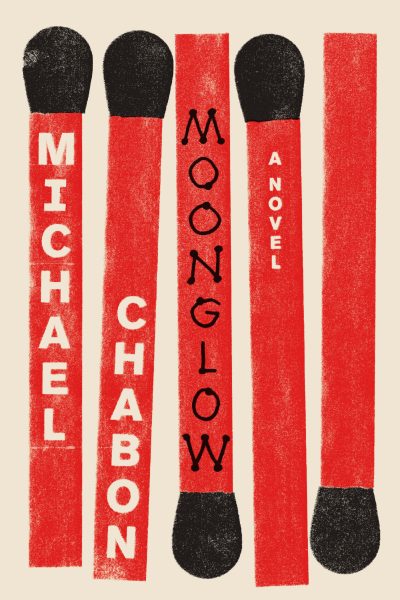Advertisement
Michael Chabon Blurs Fiction And Memoir In 'Moonglow'
Resume
"Moonglow," Pulitzer Prize-winning writer Michael Chabon's new novel, is framed as a memoir in which the narrator, named Michael Chabon, recounts the life of his grandparents — who came of age in the 1940s.
Much of the narrative is a kind of death-bed confession from the grandfather, who tells Chabon stories about World War II combat, Jewish life in post-war America, mental illness, the Holocaust and the early development of rockets.
In his note to readers at the start of the book, Chabon says, "In preparing this memoir, I have stuck to facts... except when facts refused to conform with memory, narrative purpose, or the truth as I prefer to understand it."
Michael Chabon will be speaking at a Brookline Booksmith event at the Coolidge Corner Theatre Monday evening at 6 p.m.
Interview Highlights
On His Book's Disclaimer On Facts
"I think I've come of age as a novelist in the era of the creative non-fiction renaissance and the ascendancy of the literary memoir. And I've had to, in a sense, stand by and watch as these documents, many of them I hasten to say are some of my favorite books ... like 'This Boy's Life' by Tobias Wolfe or the granddaddy of the genre 'Stop Time' by Frank Conroy ... I'm not really knocking memoirists per se, but this idea that what you get between the covers of a memoir is the truth, is factual, is a highly dubious statement.
"So I think I wanted to try to somehow find a way in telling this story ... to sort of assert the power of fiction to tell a truth, that you could never get at through any other means. That the only way to arrive at it is making up a lie, telling a lie."
On The Contract A Writer Has With The Reader
"It's very important. To me, what makes the lies of the novelist not just permissible but potentially beautiful, admirable, is that fact that the reader knows perfectly well from the beginning that this is a lie. The reader gives her consent to be lied to — 'Please lie to me, I've come to you to be lied to, just make it a good one.' That's really important. That's how it works with stage magic ... the magician says, you know, I'm not really gonna be sawing someone in half ... You could just sit back and enjoy the illusion but there is that contract.
"To me, that is missing sometimes with memoirs where, and I speak as a reader of memoirs, it often is really not certain how to evaluate this.
"There are memoirs and there are memoirs... Some that might be considered the greatest, find ways to signal either openly or implicitly, ways when characters, personages are being conflated."
On The Grandfather Character In 'Moonglow'
"The grandfather in this novel is, in a way, he's a kind of paradigm of the tough Jew — the silent, taciturn, emotionally not particularly connected male of his generation. I had relatives like that growing up. Not my grandfather, my grandfather was very, came out of a very different approach to being a man. Not that he was very touchy-feely, he wasn't especially connected to his emotions either ... he was very verbal ... this is sort of the strong silent type.
"This man is, I'll be honest with you ... in many ways it's more than anything else, it's kind of a self-portrait, in a way this is sort of a what if. And the what if of this novel is what if I didn't, for whatever reason, struggle as hard as I struggle not to be taciturn, misanthropic, antisocial, sort of a disdainful attitude toward all of humanity including oneself. I have all of those tendencies in me and for various reason it's become important to me to fight against those tendencies.
"With your grandparents we have a tendency sometimes to idealize our parents and it's even more with our grandparents ... negatively idealize our grandparents too ... I think one of the tragedies of life is when you hit the age where you turn backward and say who are those people, who were those people, it's too late. They're gone already or they go quickly."
On The Grandmother Character In 'Moonglow'
"What makes her tick is sort of the ultimate mystery of the whole book. She is an enigmatic figure in the life of her husband, in the life of her daughter, and in the life of her grandson as well.
"She was born in France, she immigrated to the U.S. after the war. Her story is clearly caught up with the Holocaust, the German occupation of France, the deportation of French Jews. But in how her story is caught up with that, and in what manner she came through that experience, what she did or did not do to survive, is a source of profound mystery almost throughout the entire length of the book."
On If He'll Write A Memoir Based On The Real Facts Of His Life
"If I do, I probably won't tell anyone that's what it is."
Guest
Michael Chabon, Pulitzer Prize-winning writer.
This segment aired on November 28, 2016.